10 years, 477 startups, 4,142 jobs created, $916.4M raised and counting…
2020 marks a huge milestone for the DMZ. It’s a big anniversary – we’ve officially been around for a decade. We’ve transformed from a small student coworking space to a world-leading incubator-accelerator, and to celebrate this birthday we’re taking a trip down memory lane to reflect on the accomplishments, challenges and victories the DMZ has seen since our inception. Most importantly, we want to highlight the people who have pivotal roles in shaping what the DMZ is today.
We’re giving away a Nespresso machine + more to celebrate 10 years!
Check out the DMZ Instagram to participate in our trivia and giveaways over the next two weeks. Starting on Wednesday, September 16, we’ll be giving away a brand new Nespresso Vertuo Coffee & Espresso Machine, exclusive DMZ swag and a copy of the #1 Bestselling book Good to Great by Jim Collins. Since you’re already reading this blog, you’ve got a head start – you may just find some trivia questions here! Follow us now to ensure you don’t miss a post.
DMZ’s biggest milestones over the last decade

The DMZ is born.
A student founder from Soapbox pitched an idea to Sheldon Levy, Toronto Metropolitan University’s then-President. The student needed support in developing an idea for a new startup company and couldn’t find the help they needed on campus. Sheldon Levy saw the potential to create an innovative space for students to work on new business ideas, and together with co-founders Valerie Fox and Dr. Hossein Rahnama, the Digital Media Zone was born!

Open for business.
Within one year of opening, the DMZ had already garnered significant interest within the entrepreneur ecosystem. In 2011, the DMZ’s first Executive Director and Co-Founder, Valerie Fox, made a decision that would transform the Digital Media Zone: opening our doors to founders outside of the Ryerson community. As the number of founders joining the DMZ grew, the physical space grew with it and expanded two extra floors to accommodate incoming companies.
DMZ Co-Founder, Dr. Hossein Rahnama was the first to commercialize his research at the DMZ and founded Flybits – a startup that went on to become one of Canada’s top AI companies.

Royalty arrives at the DMZ.
It’s true! In 2012, His Royal Highness Prince Charles paid a visit to the DMZ while on a Canadian tour. The Prince made his way through the DMZ’s offices at Yonge-Dundas square and student entrepreneurs were given the opportunity to showcase their companies, drawing the royal member’s attention to the talent and innovation being incubated at the DMZ.
In 2012, Carrie-Ann Bissonnette, Manager, helped build processes and rigger that shaped the foundation of the DMZ in its early days.

A new investment arm & visit from Justin Trudeau.
As early-stage DMZ startups began transforming into high-growth companies, Toronto Metropolitan University launched Ryerson Futures Inc. (RFI), a for-profit investment arm and startup accelerator that could provide companies with seed financing to help them grow to significant value. This year, we announced RFI’s rebrand to DMZ Ventures.
In 2013, the DMZ received yet another high-profile visit. This time, it was Justin Trudeau that stopped by to get a tour of the newly-expanded, five-floor DMZ incubator during his federal Liberal leader election campaign that year.

Launch Zone opens.
Now known as DMZ Sandbox, the former Launch Zone opened its doors in Ryerson’s brand new Student Learning Centre as an on-campus space to help students looking to explore the world of entrepreneurship. More than six years later, DMZ Sandbox continues to help the next generation of aspiring entrepreneurs turn their ideas into real businesses.
$63.1M capital raised by DMZ startups in 2014

New name, new leadership, new global title.
2015 marked a turning point for the Digital Media Zone. Over five years, the technology being incubated at the DMZ shifted and the majority of startups were no longer considered to be within the digital media field. The Digital Media Zone announced an official rebrand to “DMZ”, signalling it had become sector-agnostic.
In July 2015, the DMZ saw another big change – Abdullah Snobar took over the role of Executive Director. From the start, Abdullah invested in rebuilding the DMZ so it offered more functional workspaces, better communal areas to host events and investor meetings, and home-like amenities to build a comfortable environment for founders spending long hours on their startups. Under Abdullah’s leadership, the DMZ began putting dedicated resources into expanding its program team. DMZ’s offerings expanded to include more hands-on coaching, vibrant community events, support with customer acquisition and giving startups better access to capital. Revamping the program structure and creating a “founders first” environment ultimately led the DMZ to earn the title of the top incubator in North America by UBI Global!
$68.2M capital raised by DMZ startups in 2015

The first Advisory Council.
As the DMZ continued to evolve its growth strategy, its next big move involved launching the first Advisory Council in 2016. Formed to help build the strongest startup community in the world, the Council members would go on to promote the DMZ in the broader business community and advise the DMZ on matters such as strategic direction, international growth, fundraising, industry trends and more. To this day, our Advisory Council nurtures the DMZ’s connection with the business community.
$77.1M raised by DMZ startups in 2016

DMZ opens a leading growth accelerator.
In 2017, the DMZ launched its very first accelerator cohort to help entrepreneurs innovate faster and achieve hypergrowth. Three years and 13 cohorts later, the DMZ’s most competitive program has received world recognition.
That year, DMZ also gave Canadian tech startups a new place to call home south of the border and opened a new office space in the heart of New York City’s financial district, making the DMZ the first Canadian university incubator to open an office in the U.S.
$168.6M raised by DMZ startups in 2017

#1 in the world.
In 2018, UBI Global ranked The DMZ as the number one university-based incubator in the world. UBI Global is a leader in performance analysis of business incubators around the world. The Stockholm-based research organization looks at over 20 key performance indicators to determine rankings.
That’s not all for 2018! DMZ was given yet another prestigious title by Waterstone Human Capital and was named as one of Canada’s Most Admired Corporate Cultures, affirming the DMZ’s core values as an organization: -‘equity over everything’, ‘founders first’ and ‘be great’.
$197.7M capital raised by DMZ startups in 2018

Game-changing programs and work culture.
Last year marked another year with many firsts for the DMZ. In 2019, we launched two brand new programs that both took a customized, founders-first approach. The first, DMZYYZ, launched a two-week soft-landing program that gave elite international entrepreneurs a personalized ticket into the North American market, fueling business integration with other global markets. The second being the Black Innovation Fellowship – a first-of-its-kind initiative in Canada aimed at breaking down barriers Black founders face, helping them scale their companies to the next level.
$189.1M capital raised by DMZ startups in 2019

10 years, 477 startups, 4,142 jobs created, $916.4M raised in total.
Between a global health crisis and economic downtown, it’s no secret the last six months of this year have brought pain, heartbreak and struggle for many in our community. The business landscape, in many ways, has completely transformed – but as a result, we’ve found some powerful silver linings.
The DMZ community thrives off of building strong in-person connections, but moving to a virtual environment has opened new opportunities for our startups and programs. We’ve been able to connect more extensively with founders, partners, and opportunities around the world. Virtual programming has allowed us to expand our offering to international companies, and we’re now serving (and accepting applications from) startups worldwide.
In the last six months alone, we: transformed our programming to run our Incubator and Accelerator virtually, helped international companies integrate into the North American market through the DMZ YYZ program, launched the #HackTheCurve challenge, hosted government calls advocating for startup COVID-19 support, had several student entrepreneurs go through our Startup Certified and Basecamp programs, provided dedicated programming for Black entrepreneurs (Black Innovation Fellowship Pre-Incubator) and women-led startups (Women Founders Fast Track pilot), joined industry leaders to establish the Innovation Economy Council, launched DMZ Innisfil to drive innovation in rural Ontario, introduced new international programs (shh… stay tuned!) and announced DMZ Ventures – a move that allows us to offer a full spectrum of startup support at every stage – from business ideation to investment.
That’s just a quick snapshot of what we’ve got going on – it’s been a busy year, but we won’t stop here.
DMZ’s vision is to see a world powered by ambitious entrepreneurs. In these times, we pledge to do whatever it takes to help our tech startups push past barriers to growth and transform into world-class organizations.
Thank you to everyone who’s helped the DMZ become what it is today – the late Raymond Chang, Valerie Fox, Dr. Hossein Rahnama, Sheldon Levy, and Mohamed Lachemi, current President and Vice-Chancellor of Toronto Metropolitan University, just to name a few. An immense thank you to all of our incredible startup founders and their teams, all of our coaches, advisors, partners, and staff – cheers to the next decade of building great Canadian tech companies.
We can’t wait to see what the next 10 years hold.
Are you a startup founder interested in learning more about DMZ’s programs? Reach out at dmz@torontomu.ca!




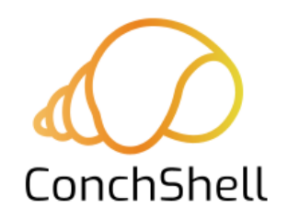
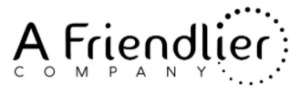
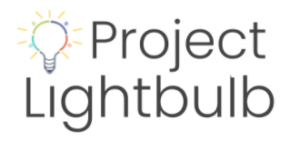
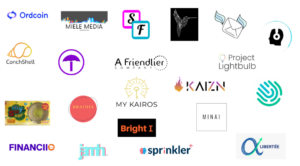
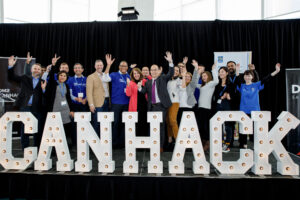



 Off2Class
Off2Class Fasken
Fasken
 DMZ has partnered with
DMZ has partnered with  Andrew Wells is the CEO of
Andrew Wells is the CEO of 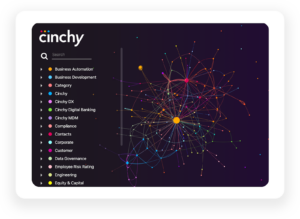
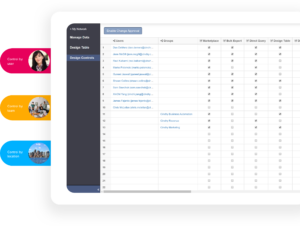 COVID-19: making a difference across industries in the months to come
COVID-19: making a difference across industries in the months to come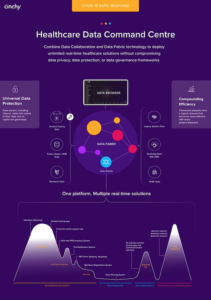
 Think back to when you started your company. Was it you and your cofounder working around a kitchen table? That’s when your legacy approach was first formed. How you made decisions together, how you defined your priorities, how you structured your company. Then you grew from a team of four to eight to 16. Your organizational structure was solidified, and your early culture was born. As you went from your series A round to your B round, you gave investors different rights and you established different classes of shares. All of this defined how decisions would be made and who had a seat at the table.
Think back to when you started your company. Was it you and your cofounder working around a kitchen table? That’s when your legacy approach was first formed. How you made decisions together, how you defined your priorities, how you structured your company. Then you grew from a team of four to eight to 16. Your organizational structure was solidified, and your early culture was born. As you went from your series A round to your B round, you gave investors different rights and you established different classes of shares. All of this defined how decisions would be made and who had a seat at the table.




 The idea for PocketHealth began with a simple experience that my brother, Harsh, had while he was working in the Bay Area in Silicon Valley. He was playing tennis and sprained his ankle quite badly. He was required to get an MRI and an X-ray, and when he was done with that MRI, he was handed two CD-ROMs.
The idea for PocketHealth began with a simple experience that my brother, Harsh, had while he was working in the Bay Area in Silicon Valley. He was playing tennis and sprained his ankle quite badly. He was required to get an MRI and an X-ray, and when he was done with that MRI, he was handed two CD-ROMs. Can you tell us more about PocketHealth’s product?
Can you tell us more about PocketHealth’s product? We’re having Directors of medical imaging and CEOs of hospitals calling us saying, “We needed this yesterday”. We’ve increased the number of sites deploying on our platform by over 300 percent monthly as imaging clinics and hospitals across North America grapple with this problem.
We’re having Directors of medical imaging and CEOs of hospitals calling us saying, “We needed this yesterday”. We’ve increased the number of sites deploying on our platform by over 300 percent monthly as imaging clinics and hospitals across North America grapple with this problem.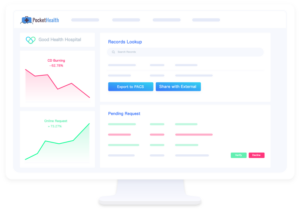 We have some exciting deployments outside of our traditional geographic markets that will be announced soon. This is definitely a global issue. We know that patients’ desires to be in touch with what’s going on in their bodies are universal. It transcends geographic and political boundaries. The product and infrastructure we’ve built it on is designed to scale globally very quickly.
We have some exciting deployments outside of our traditional geographic markets that will be announced soon. This is definitely a global issue. We know that patients’ desires to be in touch with what’s going on in their bodies are universal. It transcends geographic and political boundaries. The product and infrastructure we’ve built it on is designed to scale globally very quickly.
